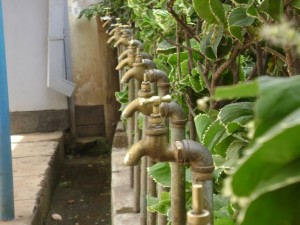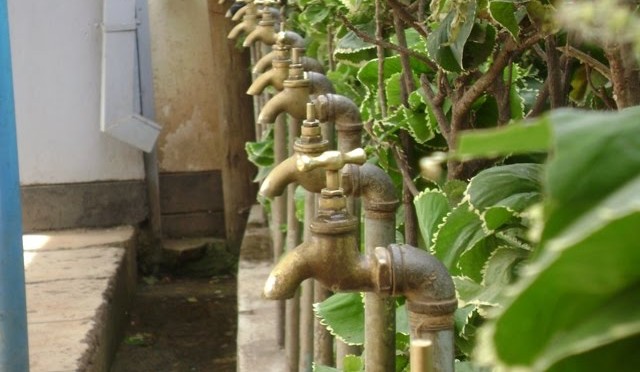(i) Tracking changes in the three months since June 2009, and approximately one year and two years ago
(ii) also the job/other opportunities column is back
Gotten cheaper
Communications: leading mobile company Safaricom this week launched Super Ongea, a zoning tariff that eases congestion on the network by offering different rates from the then low 8 shillings per minute (now the high) to as low as 80 cents per minute. This they hope will ease congestion on the network and also hold on to some customers who are flocking to the cheaper new provider Yu (Essar telecom) who have very low rates. Zain and Orange have gone slow on the marketing front, and this week the Orange CEO called for an end to price wars. The new Safaricom tariff does not affect data or money transfer of which Safaricom is getting a stranglehold with m-pesa and 3G. Safaricom is big seller of mobile phones, modems, and laptop computers, going full blast in data at the expense of retail ISP’s while M-Pesa utilization has taken on a life of its own that makes Kenyans wonder how life was before mobile money transfers started three years ago.
Foreign Exchange: 1 US$ equals Kshs. 75.93 compared to 77.94 three months ago.
About the same
Fuel: A litre of petrol is Kshs 80.9 (~$4.79/gal) up 11% in 3 months, 1@% cheaper than a year ago and 10.5% above two years ago, so relatively unchanged as thin fuel margins still continue from the price drop of about a year ago that wiped off Triton
Entertainment: A bottle of Tusker beer (at local pub) is Kshs. 120 down from 130 three months ago. Prices seem to have stabilized though and with English football season on now, bars will not be changing prices anytime soon. East African Breweries year-end results showed that beer volumes were up just 1% for Kenya
Gotten more expensive
Staple Food: Maize flour which is used to make Ugali that is eaten by a majority of Kenyans daily. A 2 kg. Unga pack at Uchumi today costs Kshs. 84, 9% cheaper than 3 months, 15% up from a year ago, and 68% up in two years ago. Already there is worry about a grain shortage in the next few months, and the country may have to import some maize while awaiting the harvest from local farmers near the end of the year
Other food item: Sugar (2 kg. Mumias pack) is Kshs. 200 up 14% in 3 months, 38% in 1 year, 33% in 2 years, though it’s hard to say if sugar shortages are genuine or artificial; the annual importation exercise is a tug of war between politicians, tax man and importers.
Electricity/utilities: this month’s bill is Kshs 1,900 compared to 1,500 from three months ago. Still I can’t complain since compared to what some residents pay . The electricity rationing seems to have ended but at a cost since the new electricity is generated from more expensive thermal sources. The clean energy planned for Kenya- wind (Turkana, kengen) and sugar (Mumias), and mini-hydro’s (KTDA) will take a while to be felt in our bills. 
Water rationing is still on going and the Nairobi water company said bills would increase from July 2009 onwards by about 50%.
Opportunities
most from the daily papers this week
SME Funding/Solutions
– For software developers from Microsoft through Local innovation centres unverified
– The Esther Passaris Grant is a monthly grant for Entrepreneurs. of between Kshs. 50,000 to 100,000 unverified
– Ongoing business plan competition jitihada closes 23/9
– Toolkit for learning: the IFC SME Toolkit Kenya
Jobs
– finally a blog -related job makes the newspapers – The British high commission in Nairobi is hiring a communications support officer part of whose job will include supporting the post webmaster in developing & maintain website, including the high commissioner’s blog through regular updates and site moderation. d/l is 23/9 and applications by snail mail only.
– Central Bank of Kenya : Accountants/ Financial Analysts, Finance Officers, Network Engineer, Network Administrator, Analyst/Programmer, Assistant Director: Policy Development And Research, Assistant Director, Academic Affairs, Finance Manager (2), Assistant Finance Manager (2), Internal Audit And Risk (manager, assistant manager, officer) and other jobs. D/L 25/9
– Equity Bank: Assistant HR Manager- Training & Development, Assistant HR- Services Manager D/L 19/9
– Apprentice engineers (20) at KPLC recruitment@kplc.co.ke by 7/10
– KIPPRA jobs not online Economists in Infrastructure & Economic Services (3 positions), Senior Analyst/Analyst, Assistant Analyst, Analyst, Assistant Analyst apply to admin @ kippra.or.ke by 21/9
– Safaricom : Senior customer systems analyst , senior manager – financial systems & analysis , principal accountant – treasury planning D/L 23/9
Tenders
The Kenya Government has asked all ministries, agencies, parastatals to e-mail in soft copes of any tenders or procurement notices they advertise in the newspaper. This will be displayed at a government procurement portal.
Despite Safaricom’s controversial, no frills, AGM, Kengen, the company with the second largest shareholder register (216,000) after Safaricom, is not going to let its members go home empty handed. They have a tender at their site for
supply of agm goods & services that closes on 24/9
Travel: Emirate Airlines have launched world cup travel packages for fans wishing to attend the 2010 world cup in south Africa; these combine air travel, hotel bookings in Johannesburg, cape town & Durban, and ground transport to stadiums.


